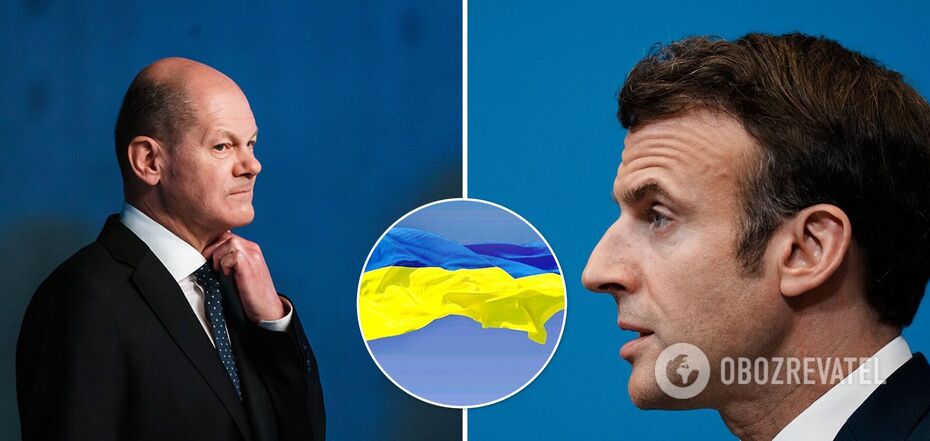Politics
Macron provokes, while Scholz fears militarization: The New York Times told about the disputes between politicians over the war in Ukraine
In recent days, the differences between French President Emmanuel Macron and German Chancellor Olaf Scholz have become even more pronounced over their views on the war in Ukraine. Politicians cannot agree on how to confront and deter Russian aggression.
Recently, Macron repeated his statement about the possibility of sending troops to Ukraine, noting that "Europe will have to stop being cowards." The New York Times explained how the dispute between Macron and Scholz could affect political stability in Europe.
Berlin perceived the French president's remarks about cowardice as an insult to postwar history after the trauma inflicted by the Nazis. German Defense Minister Boris Pistorius replied that Europe does not need discussions about having more or less courage.
Analysts believe that now is not the best time to clarify relations between European countries, but Macron and Scholz are probably far from demonstrating unity of purpose and European leadership in their efforts to confront Russian dictator Vladimir Putin.
The tensions between Germany and France reflect differences in personal styles as well as clashing national interests driven by domestic politics. Scholz and Macron's response to Russian aggression has become part of a complex relationship. In the summer of 2022, Macron called for "not humiliating Russia and creating a European security order that would include Moscow's opinion," but since then he has radically changed his views.
Now, the French president is openly talking about the danger that Russia poses to Europe, especially as the possibility of a new Donald Trump presidency in the United States becomes more and more serious.
According to analysts, Macron is comfortable being a provocateur, as he considers himself a destroyer of lazy thinking, which is evident in his suggestion that "we should not rule out sending Western troops to Ukraine." At the same time, he considers the German Chancellor to be overly cautious and too dependent on the United States, which no longer wants to spend large sums of money to help Ukraine.
The French president is also concerned that Scholz does not fully realize the importance of Europe's commitment to a unified defense, which has been necessary for years of confrontation with Moscow. Moreover, Germany is skeptical about Europe's collective response to Russian aggression and believes that European "strategic autonomy" implies too radical a liberation from Washington.
Macron has said that defeating Russia should be the West's goal, rejecting the German formulation that Russia simply must not win. But in Germany's view, such statements by the French president about the war and its plans for Europe often lack a roadmap. Therefore, such differences may require a new commitment to diplomacy from both politicians.
As a reminder, France intends to create a coalition of countries whose leaders will be ready to send their troops to Ukraine. According to French Foreign Minister Stephane Sejourne, the terrorist country Russia should not tell Europe how to help Ukraine in the coming months or years.
Earlier it was reported that French President Emmanuel Macron is considering a scenario of sending troops to the territory of Ukraine if the Russian occupiers manage to break through the front towards Odesa or Kyiv. The president spoke about this with the leaders of the country's main political parties at a meeting organized on March 7.
Only verified information on our Telegram channel OBOZ.UA and Viber. Do not fall for fakes!



























